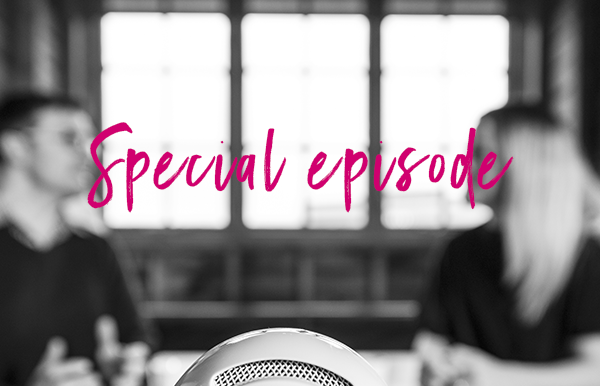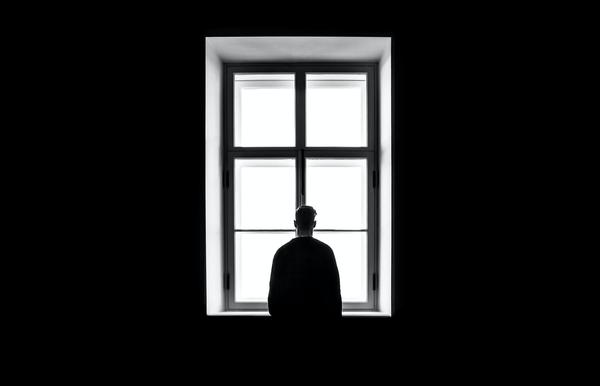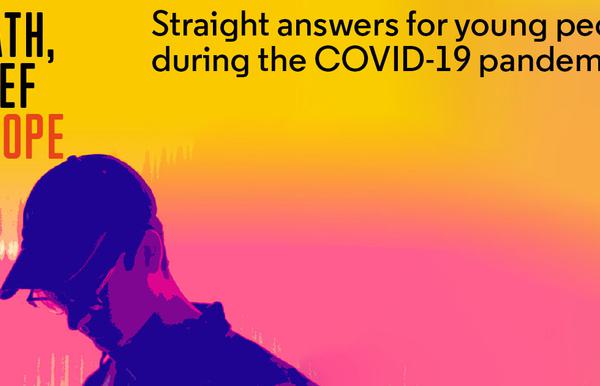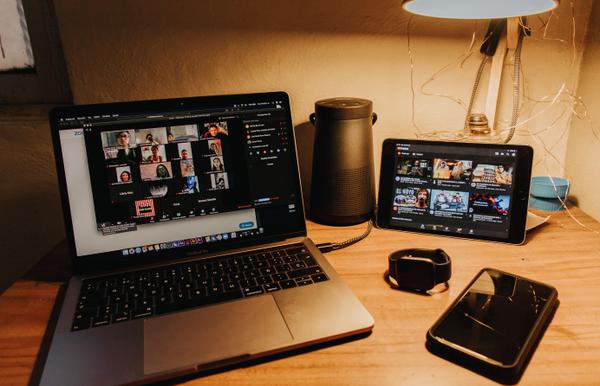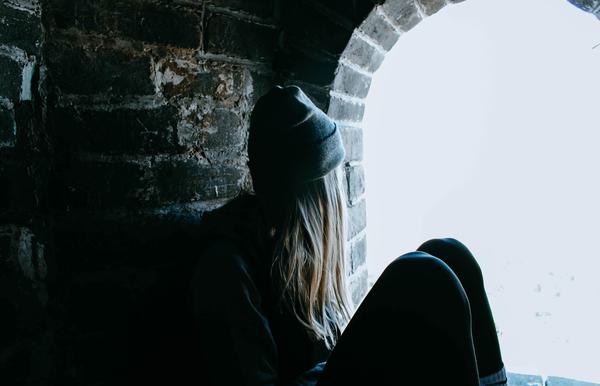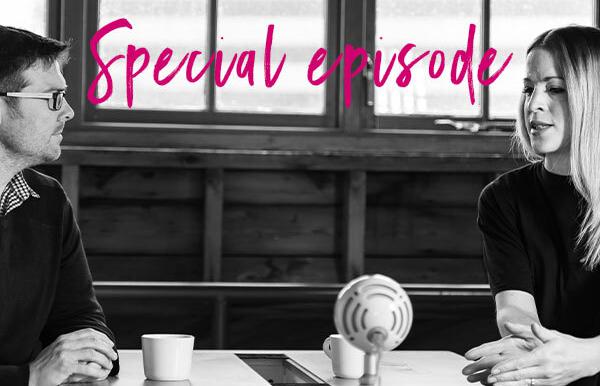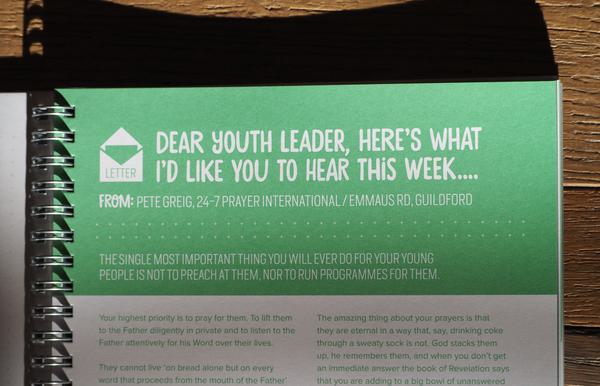We ran this liveblog from March to May 2020 to help youth leaders respond to the Covid-19 pandemic. All the content shared can still be accessed and searched for via the sidebar.
SOME HIGHLIGHTS FROM THE LIVEBLOG ARCHIVE:
Topic: Mental health
There are 0 new posts since the page loaded. Refresh
The Monday Report: Gratitude, overwhelm, and unexpected positives of lockdown
Last week we asked you some questions for the Thursday 3x3 - a way to take the temperature of the youth ministry community during the Coronavirus pandemic. Every Thursday at 3pm we ask three questions that will take you no more than three minutes to answer. We had 28 responses so this is not a representative group and we can’t generalise from these answers to all Christian youth workers in the UK. This week we asked about how you’re feeling, lockdown guidance and positive experiences of youth ministry.
You can read the full report here.
1. STILL GRATEFUL, STILL OVERWHELMED
This is the third (and final) time we’ve asked about how you’ve been feeling over the last week. We’ve asked the same question in week one (n=60) week five (n=53) and now week ten (n=28). With half-term in full swing and many youth workers furloughed, we had fewer people fill out this third survey but there is still some real consistency around the emotional experiences of feeling grateful and feeling overwhelmed. We know practising gratitude is powerful, but how do you manage moments of feeling overwhelmed? Here’s a great article from Dr Kate Middleton on overwhelm and some encouragement from one youth worker to another in a recent blog post for Youthwork News by Gemma Milligan.
2. LOCKDOWN
In week three we asked whether young people were following social distancing guidelines and (as far as you knew) the majority of you said yes. Now that we all have permission to meet in small groups outside, we wanted to come back to the question. This time we asked which of the statements below you agreed with. Given that youth work is not generally face to face, it is interesting that 30% have explained the guidelines and 85% have encouraged young people to stick to them. 41% have witnessed young people they know not following the guidelines, some of whom have been struggling with anxiety. But, as someone pointed out in a comment, we neglected to ask whether you had seen young people followingthe guidelines! In fact, where people made comments it was generally to tell us about young people’s compliance, or their frustration at friends who weren’t complying.

3. THE UNEXPECTED POSITIVES
We would never choose them, but these experiences of crisis can sometimes precipitate welcome change in ourselves and others. So finally, we asked ‘Has lockdown had any positive impact for your work with young people?’ There were a range of responses, but here (in order of frequency reported) are the key areas where you’ve seen good developments.
- More meaningful contact with young people. Some people have supported more young people through lockdown, but for most it has been about smaller groups, more focused conversation, space to talk about feelings, the chance to offer pastoral care or just the opportunity to develop closer relationships with specific individuals.
- More creativity in your approach to youth work. You told us about diversifying your programmes, doing more one-to-one engagement, doorstep deliveries, art-based work and even being able to use WhatsApp - despite previous resistance to the idea.
- Deeper faith development. Some people have noticed young peoples’ faith developing through a renewed focus on God or scripture within group settings. Others described young people being more vulnerable, more supportive of peers or whose faith was flourishing where they were taking more responsibility in a group.
- Other answers. Finally, there were other positives that you told us about: more meaningful contact with the parents of young people; the chance to slow down and read; more contact between young people themselves; opportunities to just have fun; group exercise and even appearances on a Sunday.
New blog: a vital mindset shift for youth work
There's a new blog post up at Youth Work News! It's all about a mindset shift that can help us when pandemic crisis has robbed us of any sense of control.
"...in just one week, I tumbled from “fine” to “absolutely not ok”. A health scare in my family, the reality of isolation in a flat on my own for weeks, fears about youth work not working, like dominoes they tumbled one by one. Each fear triggered another, and I felt unable to pick myself up or stop the cascading fears. I was left feeling more anxious, sad, frustrated and hopeless than I have in years. I couldn’t stop my mind from going over everything that was changing, everything I was missing out on, the things I was losing, the people I was distanced from.
Sadly, I suspect I am not the only person who has been feeling something akin to this recently. It’s a feeling ultimately of losing control over things we once had."
Have to/Get to: A critical shift for youth work amidst crisis
How do we cope amidst the chaos, fear and confusion wrought by the coronavirus crisis? Lahna Pottle reflects on a small shift that made a dramatic difference for her work.
Compassion and determination: the essentiality of youth work in a post-coronavirus world
There's a new blog post at Youth Work News from our Engagement Manager Gemma Milligan, drawing on this article from The Guardian.
"Despite huge funding cuts, little resources, and basically no advocacy, youth workers are still fighting to help meet young people’s needs; many choosing to do so in a voluntary capacity too. And I have little doubt that this is something that our world will be forced to rely upon in the months to come...there are now 2 million more (and 3 million in total) vulnerable young people in England due to this pandemic. That's huge. If there was a colossal need before it has now been tripled, and schools, mental health services, social care, and all other services that support young people, are going to be desperate for help to even begin to meet it."
Compassion and determination: the essentiality of youth work in a post-coronavirus world
‘Key work’ or not, youth work is essential not only for the millions of vulnerable young people in need, but for society as a whole. Can the government—and the church—recognise that?
Podcast: Permission to fail (your stories)
We’re creating a special series of the Youthscape podcast, which will continue to appear at semi-regular intervals during the current global crisis.
The latest edition has just gone live; in it, Martin and Rachel read out some of YOUR stories, following on from last week's podcast - "Permission to fail". They also talk through some of the findings from this week's Monday report.
You can listen now here, and subscribe to make sure you never miss an episode, here.
YS Special Edition 14: Permission to fail (Your stories)
Following on from last week's podcast, we shared some of your stories about the struggles of youth work online. It's good to know we're in this together! Martin and Rachel also discuss some of the findings from the Thursday 3x3 research.
Podcast: Permission to fail
We’re creating a special series of the Youthscape podcast, which will continue to appear at semi-regular intervals during the current global crisis.
The latest edition has just gone live; in it, Martin talks to Youthscape's Jemimah Woodbridge, who shares some of her experience leading local youth work in Luton through this lockdown so far. (Check out Jemimah's blog post). Martin and Rachel also talk about whether youth work should be considered as "essential work". This podcast was recorded on Rachel's birthday, so listen out for a bonus mini celebration at the end!
You can listen now here, and subscribe to make sure you never miss an episode, here.
This week, we want to hear from YOU - our youth worker community. Please get in touch with your stories about how youth work is going: the good, bad and ugly. You could email us or send videos/voice clips. We'd love to share some of them, so all of us feel less alone and can support each other! Get in touch here.
YS Special Edition 13: Permission to Fail with Jemimah Woodbridge
What do you do when you've worked hard to do youth work online but your efforts fall flat? Martin catches up with Jemimah Woodbridge, the Director of Youthscape's local work about learning from failures as well as successes.
New blog post: Permission to fail - an open letter to the youth ministry community
When all we hear are the success stories of youth workers and churches running amazing youth work online, it's easy to get discouraged if that hasn't been our experience. In a new blog post, Jemimah Woodbridge opens up about YS Luton's lockdown experience so far:
"So, here I am, putting my hand up, and daring to say that this period of trying to respond to a totally changed world has been really difficult – to the point that we tried something, and it failed. I’m doing it because I hope it will give others permission to do the same. I waited for that someone else to hold their hands up, but all I see when I look at my social media feeds is glossy, exciting success stories. We need those of course, but we also need to honestly embrace the pain of trying new things."
Permission to fail: an open letter to my friends and colleagues in the youth ministry community
Has online youth work been difficult for you? In an open letter to her fellow youth workers, Jemimah Woodbridge calls for failure stories (as well as the victories).
New blog post: The Psychological Aftermath of Quarantine
What impact could this period of quarantine have on our mental health, and the mental health of the young people we work with? As a Church, what could we be doing to prepare? Gry Apeland explores this in a new Research News blog post:
"What we might need to prepare for instead is to walk slowly with our young people, as we take the first feeble steps together back into what we used to call ‘normal’. Does a group of 20 feel scary? Let’s start with five. Some of us could come out with long-lasting psychological symptoms – let’s have patience for each other. Let’s create a space for young people where it is safe to process this experience, even long after it is over."
The Psychological Aftermath of Quarantine
Gry Apeland reflects on the impact quarantine could have on our collective mental health, and how we can we prepare.
Youth Work Support: Staying Well at Home
Many young people are currently dealing with the tensions of staying at home. As you try to support them, here's a great resource from the National Youth Agency: "Staying Well at Home: Coping with Feelings of Frustration and Anger". It's a free workbook for young people aged 11-19. Download it here.

Out of Sight? - National Youth Agency Report
If you're concerned about the vulnerable young people in your community, we recommend reading the new report released today by the National Youth Agency. It draws attention to the pressing needs many young people are facing as a result of the pandemic and calls for a clear exit strategy for young people who are likely to be included in the early stages of release from lockdown measures.
The top-three concerns (found in the report) are:
- ‘Increased mental health problems’: Over a million young people have self-reported mental health issues. There is a spike in calls to Help Lines, with 84% reporting worse mental health following school closures or being no longer able to access mental health support
- ‘Missing from education’: With schools only partially open and youth centres closed, as few as 5% of young people are currently engaged in school and have limited or no access to youth work. Even when schools re-open there are 700,000 young people persistently absent or NEET (not in education, employment or training)
- ‘At risk, at home’: Over a million young people are at risk from any of the so-called ‘toxic trio’ of addiction, mental health, and domestic abuse. Despite this, child protection referrals have plummeted by 50% in some areas.
You can read more and download the full report here.

The Big House resources
The Big House, an Irish youth organisation, has put together a great video series called "Shaken". Here's their introduction to the series:
"We all feel shaken sometimes. Sometimes difficult things happen and we don’t know what to do, or how we feel. Shaken is a resource is designed to help you make good choices to live well when life shakes you."

New blog post: Is TV's Sex Lockdown "Too Hot to Handle?"
Netflix's answer to Love Island involves a different kind of lockdown. Rachel Gardner explores what this means for young people. Are the young people you work with watching it? This could be a great opportunity for a discussion. Check out the blog post here.
"One mistake can label you for a long time, especially in some church communities. Little wonder that some young people react like the contestants; if you've been unfairly singled out for a small misdemeanour, you might as well go the whole hog. Oh, and that’s the other thing Harry says as he kisses Francesca, ‘We’re already f*** up, we might as well do the whole lot.’ Sound familiar?"
Is TV's Sex Lockdown "Too Hot to Handle?"
Netflix's answer to Love Island involves a different kind of lockdown. Rachel Gardner explores what this means for young people.
Podcast: Young People with Additional Needs
We’re creating a special series of the Youthscape podcast, which will continue to appear at semi-regular intervals during the current global crisis.
The latest edition has just gone live; in it Martin Saunders talks to Mark Arnold about the challenges many young people with additional needs are facing right now and the best ways youth workers can support them. BONUS: listen out for a meerkat tangent!
You can listen now here, and subscribe to make sure you never miss an episode, here.
YS Special Edition 11: Young People with Additional Needs with Mark Arnold
Martin talks to Mark Arnold from Urban Saints about how we can support young people with additional needs during this time.
Self care box
BBC Bitesize have published a really helpful article about young people and self-care. They spoke to someone from Young Minds, who suggested making a "self-soothe" box, filled with things you love, like chocolate, perfume, books you like, encouraging letters from people, etc.
Could this be helpful for some young people you're working with? Give it a read and see if you can pick up some ideas.

Liveblog: midweek round-up
Welcome back to the mid-week round-up – bringing you liveblog highlights from the last seven days just in case there’s anything you’ve missed.
- We’re a few weeks into lockdown and the exhaustion of constant video calls is starting to take hold. Will Van Der Hart from the Mind and Soul Foundation articulated what so many of us are feeling his recent blog post ‘Telephone Empathy’. The article is full of insights and reflections on the exhaustion of video calls. There’s also a load of useful tips which are beneficial for youth leaders to read through and to recommend to any young people who are struggling with the beginnings of digital burnout.
- The theme of being tired of life online continued in Youthscape Podcast Special #10 where Martin and Rachel discuss ‘screen fatigue’ and how young people might try and reclaim online spaces.
- Many new resources appeared on the blog this week from several different organisations covering a variety of topics. While only a few are highlighted here, it is definitely worth scrolling through the blog to see what other excellent resources have been posted. Church Army has created a booklet titled: "Death, grief and hope", aimed at helping support young people during Covid-19. Premier Youth and Children's Work have published a really helpful article, by Mark Arnold, about how to help children/young people with additional needs to understand Coronavirus. Lastly, Youthscape released the final session in the online Together Apart series. All sessions are still available on the liveblog and provide comprehensive session plans to enable youth leaders to run a traditional youth group model online.
- Youthscape's Head of Theology, Dr Phoebe Hill, has written a blog exploring the dangers of "theologising" a crisis. The blog is inspired by a current area of research into theological reflections in youth ministry. The research team is asking for youth leaders – both employed and voluntary – to join with them on this project by filling in a survey. By taking the time to complete the survey you’ll also be in with a chance of winning a £100 voucher!
- The weekly Monday report summarised the discoveries of the Thursday 3x3 and provided insights into what youth workers are seeing and experiencing in relational to quarantine struggles, online church and life after lockdown. Please join us on 3pm each Thursday and spend 3 minutes answering 3 questions to help give us a greater understanding of what life is like for youth leaders and young people around the country at this time.
As always, we want to thank you so much for your support and if there’s something you’d love to see or even something you want to contribute in coming weeks please get in touch!
Church Army resources for young people: death, grief and hope
Many young people will be dealing with bereavement at the moment; how can we, as youth workers, best help and support them? Church Army has drawn on practical experience to create a booklet titled: "Death, grief and hope", aimed at helping support young people during Covid-19. It includes guidance on:
- Grief, and how it can affect us.
- How we can positively remember the person who has been lost.
- How saying goodbye is different because of the current crisis.
- Why Christians are still hopeful.

Podcast Special #10: Online Spaces for Young People
We’re creating a special series of the Youthscape podcast, which will continue to appear at semi-regular intervals during the current global crisis.
The latest edition has just gone live; this week, Martin and Rachel discuss "screen fatigue" and wonder if young people will move to new online spaces. They also talk about what rebellion for young people looks like in this current time.
You can listen now here, and subscribe to make sure you never miss an episode, here.
YS Special Edition 10: Online Spaces for Young People
Martin's back! He joins Rachel to discuss the phenomenon of "screen fatigue" for young people, and how they might try and reclaim online spaces.
The Monday Report: lockdown struggles, online church and lessons for the future
Last week we asked you some questions for the Thursday 3x3 a weekly survey of three quick questions, to take the temperature of the youth ministry community during the Coronavirus pandemic. It was another quiet week, thanks to Easter so thank you to the 57 people who answered our questions. Remember, the sample is not representative of the wider Christian youth work tribe so we shouldn’t assume that they apply to everyone!
This is a short summary of the Monday report. Head here to see the extended results.
1. KNOWNS AND UNKNOWNS: BOREDOM, ANXIETY AND POOR SLEEP
We presented a non-comprehensive list of issues young people might be facing during lock-down and asked you whether you knew young people were facing this, were concerned they might be, didn’t think it was an issue or just didn’t know. Head to the full report to see the results.
80% said they knew young people were experiencing boredom, while 68% highlighted anxiety and 67% poor sleep. It’s interesting that 56% are concerned about young people’s use of technology (too broad a concept really), but only 32% know this is actually an issue. 95% said that loneliness was either a known issue, or something they were concerned young people were experiencing, and 42% said they knew young people who had family members with COVID-19. It is interesting to look at what shows up at the bottom of the list too. There is concern that young people will be increasingly likely to be victims of exploitation, bullying or domestic violence during the lockdown, but most of our respondents either said this wasn’t an issue or they didn’t know if it was. Do we know how to spot the signs, if this was happening to a young person? Finally, two-thirds said that ‘not enough food’ wasn’t likely to be an issue for young people they supported, with only 7% highlighting that this was a known problem.
2. ONLINE CHURCH AND YOUNG PEOPLE: THE ACTION IS NOT ON SUNDAY
Many of us will have experienced multiple weeks of online church services by now, so we asked, ‘What’s that like?’ Most churches seem to be taking a pick n’ mix approach to the platforms they are using for online church services. At one end of the spectrum, some are exclusively pre-recording and broadcasting the service on YouTube while others are running highly interactive gatherings using Zoom (games, discussion, readings). In-between are the many who are blending ‘broadcast’ material alongside chat boxes or WhatsApp groups that are open for prayer/feedback or chat before/after or during services, and activities for children emailed in advance to families.
When it comes to Sunday services, the general sense was that they aren’t youth-friendly enough and that as a result, youth workers are leaning more heavily on supplementing these services with sessions straight after the Sunday service, at other times in the week (online youth groups), and with contact using other platforms (see week 1). Of those who mentioned young people specifically in relation to Sunday services, 14 of the 22 comments were negative, with only two being positive about the impact that moving online was having.
“No real provision for young people - even though we've asked for it. Church leaders seem blindsided by this, and are just focusing on their 'core flock’.”
3. THAT'S A KEEPER: ONLINE TOOLS, NEW IDEAS AND REGULAR DEVOTIONALS
Four weeks into lockdown we asked you to tell us up to three things that you’ve been doing differently in your youth work/ministry that you would like to continue doing when this period is over. Of course, the jury’s out on what ‘over’ means, but you get the idea. This one feels perhaps most important of all, so although this is a very quick analysis of your answers, I hope we can revisit this question again.
- Making better use of online platforms and tools: Zoom for team meetings, youth group and mentoring; individual/group messaging; YouTube; Instagram and better use of social media and video in general
- New content or approaches: Worship Wednesdays, online baking sessions, video-recorded interviews, digital detox, weekly shuffle challenges. Whether it’s new ideas, or a slightly different approach (simpler, shorter, less focused on content) there is lots of ‘new’ happening.
- Supporting young people’s faith. Lots of you want to keep sharing regular ‘devotional’ content, whether that’s publishing video reflections, sending texts or letters of encouragement or Instagram posts of scripture.
- More regular and one-to-one contact with young people. There’s a desire to continue to invest in relationships through checking in with individual young people, often through text, phone calls or post.
- Parents and prayer. And then finally, respondents wanted to maintain a greater level of communication with parents and to continue to pray more in the future.
SEE YOU NEXT THURSDAY
Thanks to those who took part. Why not put Thursday 3pm in your diary and check back here each week to take part yourself?

New blog post: To the overwhelmed youth worker, you are not alone
Are you feeling overwhelmed? In need of some encouragement? Gemma Milligan, Youthscape's Engagement Manager, has written a blog post just for you.
"These are overwhelming circumstances, and it can sometimes be really difficult to know how to cope. And when we add into the mix the new challenge of trying to find creative ways to continue to connect with and support young people during this time, this can feel like a very big ask..."
To the overwhelmed youth worker, you are not alone…
From one youth worker to another - here are three encouragements for you.
Mind and Soul Foundation blog post: Telephone Empathy
Feeling overwhelmed with video calls? "Zoomed out"? Will Van Der Hart from the Mind and Soul Foundation has published a really helpful blog post about this topic, titled "Telephone Empathy" - find it here. This was also the blog post mentioned in this week's podcast episode.
Here's a quote from the post: "The fact is that something about the medium of interactive screen calls interrupts the flow of empathy between us: People who are usually sensitive and intuitive suddenly seem abrasive and blunt. All of the subtleties of tone and pitch seem to have been edited out of our communications."
It includes some helpful tips about how to counteract this exhaustion with video calls - useful for youth leaders and perhaps also useful for any young people who are struggling with it. Mind and Soul Foundation blog is also just a great place to find help and support for your mental health. Check out their articles offering support during the Coronavirus pandemic.
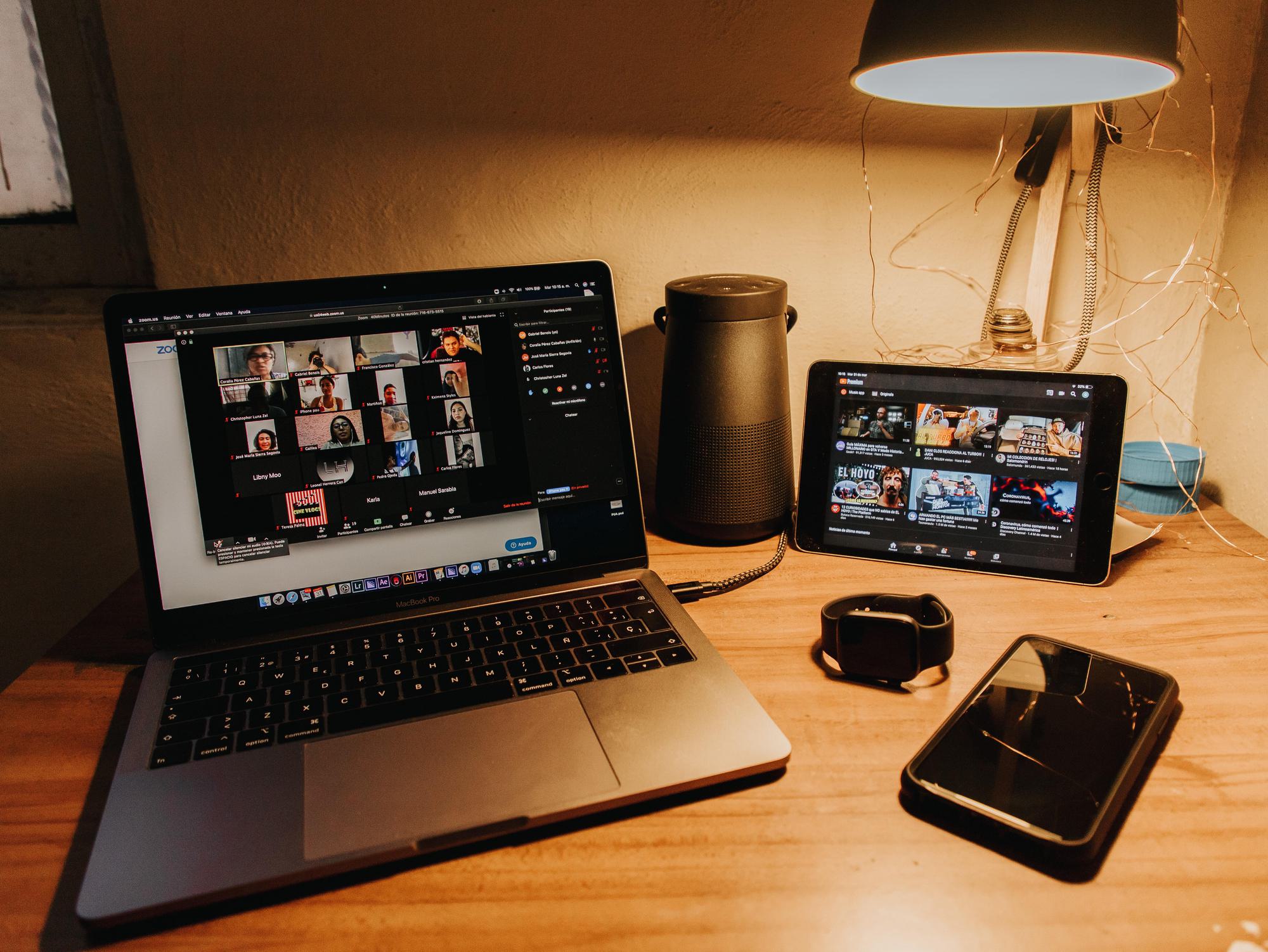
Spoken word: A new normal
Girls Brigade Ministries hosts an online blog for teenage girls, called "KoKo" (Keep on Keeping on). They've just released a new spoken word poem on their YouTube channel, titled: "A new normal". It's aimed at teenage girls and could work for parents/youth workers to use as a discussion starter.




